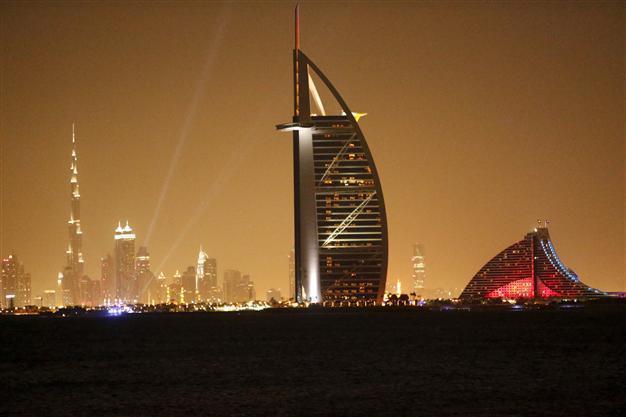Dubai bids to be creative capital of the Arab world
DUBAI - Reuters

REUTERS Photo
Move over, Cairo, Beirut and Casablanca. Dubai is on a mission to become one of the Arab world’s top centers for art, design, film and fashion - areas traditionally dominated by older Arab cities outside the Gulf.Success is not certain. The wealthy emirate is much better known as a trading and banking hub and luxury shopping destination than as a center for the arts. It lacks the established cities’ centuries of history and culture. But Dubai has advantages that older cities might find hard to provide: security, cosmopolitan lifestyles and comprehensive travel links to the rest of the Arab world.
It is throwing hundreds of millions of dollars and the latest technology into its effort, using state-linked companies to develop the project in the same way that it has successfully jump-started other industries.
“We want to encourage local and emerging talent from within the region,” said Amina Al Rustamani, the group chief executive of TECOM Investments, a business park operator owned by Dubai ruler Sheikh Mohammed bin Rashid al-Maktoum.
Other cities have allowed neighborhoods of artists and designers to emerge over the decades. Dubai is not leaving this to chance; TECOM is creating a purpose-built 2 million square-meter area called the Dubai Design District.
Tenants of the district are to include galleries, studios, workshops, boutique stores and museums, plus office and residential space. The first phase, set to open this year, will cost $1.1 billion. TECOM says over 220 companies have agreed to take part.
The Dubai Design and Fashion Council, a state-funded body, plans to set up a design school with students from around the world. One of the school’s specialties will be Islamic design. The council intends to act as an incubator for new design businesses, providing technical support and advice. Eventually, Dubai state funds could be invested in some of the businesses, along with private sector money.
To some, Dubai’s top-down approach to culture may seem stifling or sterile. But executives see no contradiction; they argue that just as the emirate has attracted traders and bankers from the region by giving them an environment where they can prosper, it can also lure artists, designers and film makers.
Jewelry, fashion, film
One early design start-up in Dubai is Bil Arabi, a jewelry business opened in the emirate nine years ago by Nadine Kanso, a Beirut-born graphic designer.
Bil Arabi sold 1,500 pieces of jewelry in the shape of Arab calligraphy for $820,000 last year. Kanso described the pieces as “bling-bling with a Middle Eastern edge,” and a serious purpose: to explore Arabs’ cultural roots.
Political stability and security were the keys to her decision to start the business in Dubai, as war and social tensions can make it hard to operate in Beirut, Kanso said.
Three British-Iranian brothers, Haman, Babak and Farhan Golkar, said they founded their high-end clothing brand, Emperor 1688, in Dubai five years ago partly because the city was younger than established fashion capitals, meaning there was room for newcomers.
Emperor 1688’s menswear sales, totaling $3.5 million in 2014, are growing at double-digit rates and a womenswear line was launched last year. Babak said Dubai was gradually developing its own fashion style, featuring opulent touches such as gold-plated suit buttons. The brand is mostly sold in the Gulf, but the Golkars plan to start sales in Europe.
In the film-making realm, the Arab Spring uprisings of 2011 pushed business toward Dubai; movies and television series that might previously have been made in Cairo or Damascus could more safely be shot on a Dubai sound stage, using computer graphics to generate the backdrops.
Film makers in Dubai don’t always operate with quite as much artistic freedom as they would in their home countries; productions in the United Arab Emirates must respect local cultural and religious sensitivities. A proposal to film a “Sex and the City” movie in the UAE was rejected; it was shot in more liberal Morocco instead.
But such considerations aren’t an obstacle to most films. There were 777 applications to make short films, TV series and commercials in Dubai last year, up from 741 in 2013. Some 146 TV channels broadcast from the emirate, although Dubai faces stiff competition from neighboring Abu Dhabi to host blockbusters.
















